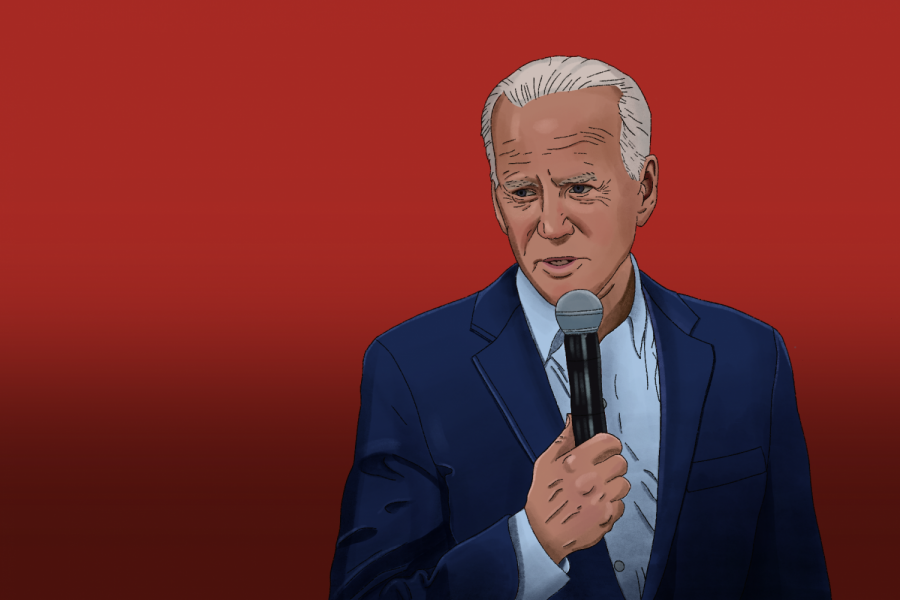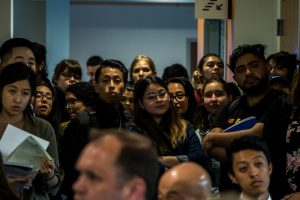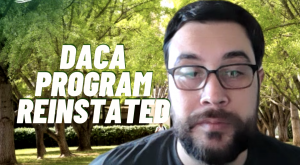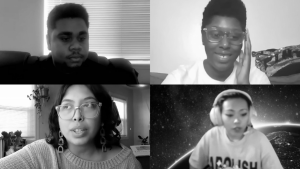Sac State students and faculty share expectations for the Biden presidency
Illustration by Tara Gnewikow.
March 3, 2021
As President Joe Biden has reached a month into his presidency, many students and faculty at Sacramento State are expecting the Biden administration to resolve issues left behind by the previous administration.
The State Hornet spoke to students and faculty at Sac State about what they wanted to see Biden accomplish regarding certain issues the U.S. is tackling while he is in office.
Immigration
On his first day in office Biden sent an immigration bill to Congress as part of his commitment to modernize America’s immigration system.
“The U.S. Citizenship Act of 2021 establishes a new system to responsibly manage and secure our border, keep our families and communities safe, and better manage migration across the hemisphere,” Biden said Jan 20, in a White House press briefing.
Erik Ramirez, program coordinator for the Dreamer Resource Center at Sac State, said that everyone at the center is optimistic they will see immigration reform that not only addresses students’ issues, but also addresses the issues that those students’ families face.
The White House’s fact sheet of Biden’s immigration bill legislation states it would modernize the American immigration system and would prioritize keeping families together.
RELATED: PODCAST SPOTLIGHT: Legal advocate explains the situation for DACA and Dreamers
“I would want the administration to grant citizenship to the millions of people under DACA, and lay out a path to citizenship for immigrants who have been here for a long time, while making it easier for new immigrants to live in the U.S.,” said Ivan Cervera, civil engineering major, via text.
Story continues below the image.
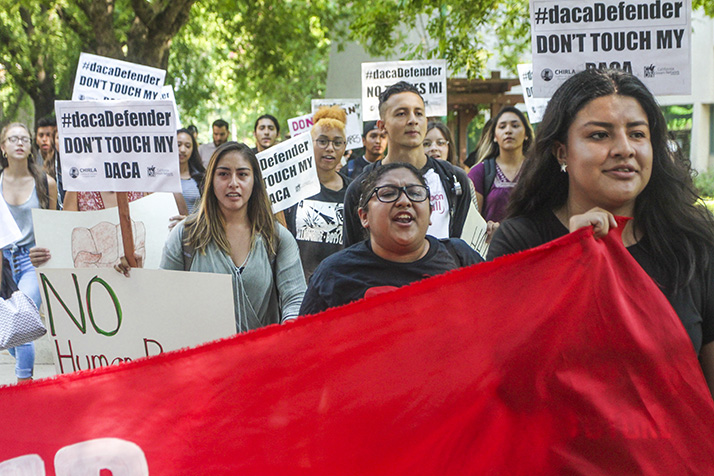
The legislation would also let certain individuals, such as Dreamers, who met specific requirements, be immediately eligible for a green card.
“We’re excited, we’re optimistic and hopeful but we are also cautious because we understand that any concrete immigration reform is going to require Congress,” Ramirez said.
Biden issued a proclamation that rejected Trump’s proclamation 10014 that suspended the entry of immigrants who presented a risk to the U.S. economy during the COVID-19 pandemic according to a featured issue of Biden’s first 100 days in office by the American Immigration Lawyers Association. However, he did not take action to revoke the entry ban on temporary nonimmigrant workers.
Higher education
For years students have taken out loans so that they can afford to pursue higher education. The Federal Reserve estimates that in quarter three of 2020, Americans owed more than $1.7 trillion in student loans, which is a 102% increase in the past decade from the $845 billion owed in quarter three of 2010, according to a CNBC article.
“It’s really expensive to attend higher education institutions which is why people resort to student loans; I think we need to figure out how to lower those costs,” said Christian Landaverde, member of College Republicans and political science major.
Story continues below the image.
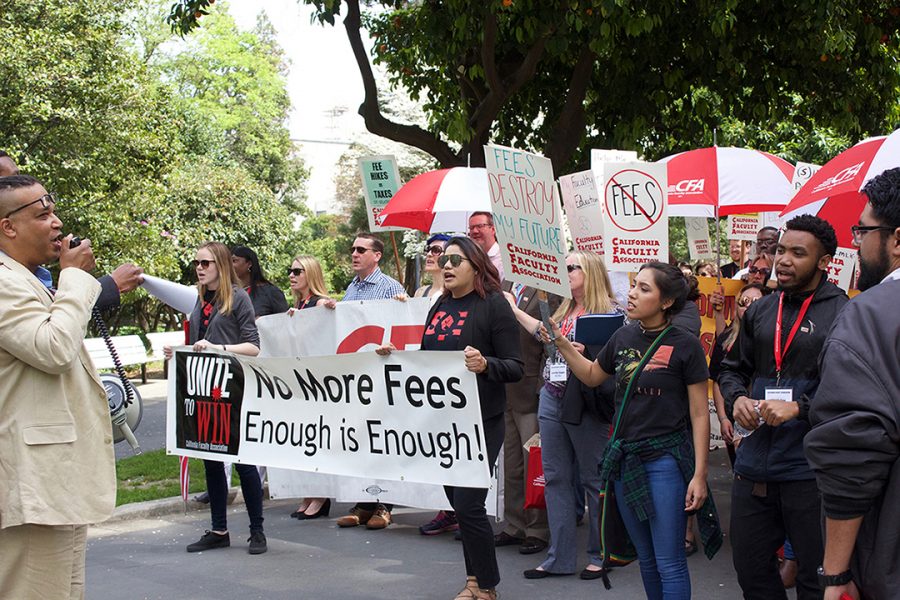
As of Jan. 20, 2021 the acting secretary of education extended the pause on federal student loan payments and collections, and is keeping the interest rate at 0% at the request of President Biden.
RELATED: Nelsen announces up to $850 direct payments to Sac State students
Cevera wants to see the Biden administration cancel all student debt. He believes just pausing student loans for eight months is nowhere near good enough.
“It’s like slapping a mini Band-Aid on a deep wound,” Cervera said via text.
Biden said Feb. 16 that he would not eliminate $50,000 in student debt, shooting down a proposal that other Democrats introduced this month, but that he is open to some level of loan forgiveness according to an article by NBC News.
COVID-19
On Jan. 20, 2021, Biden signed an executive order that mandated the use of masks in federal buildings and public areas.
The secretary of Health and Human Services will be working with different states in setting a standard in using masks in public places with the goal of public compliance with the mandate rules according to the executive order.
“There has been extensive research conducted around the world that proves wearing a mask is one of the best ways of containing the virus,” Cevera said.
Sophomore Angelica Lopez, nutrition and food major, said that the challenge to Biden is from the public themselves as many do not follow much of the rules and ignore the dangers.
“I see people on social media, they’re having parties and everything,” Lopez said. “So they are not complying with the order but I think the orders have been very good and have shown a good effort to stop the spread of COVID-19, it’s just the people are very stubborn and just won’t follow through with them.”
Story continues below the image.
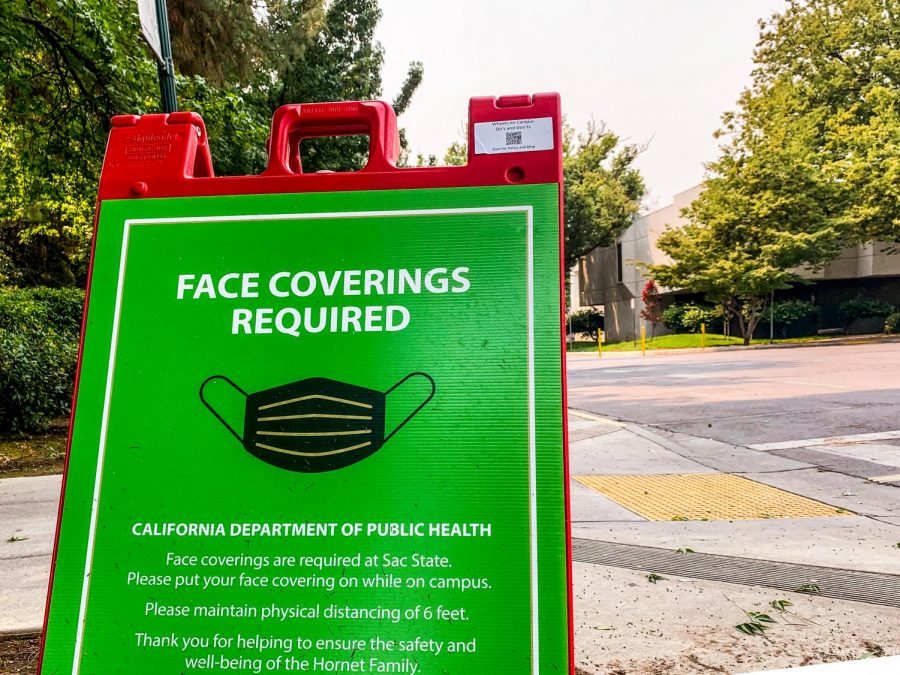
College Democrats Vice President of Communications Mousa Musallam, said he believes that the mask mandate is important in order to prevent the spread of the virus.
“I don’t think there’s going to be any legitimate grounds for saying, ‘oh he breached my freedom,’ like no, it’s a health thing,” Musallam said.
Another priority for the Biden administration is the prioritization, distribution and administration of the COVID-19 vaccine.
RELATED: Sac State will not require COVID-19 vaccine — student, faculty react
Political science professor James DeShaw Rae said the problem he sees in Biden’s vaccine rollout is it is creating an expectation of something that may be out of reach.
“The risk is it’s up to the states and counties to execute the rollout and I think he’ll be adaptable to partnerships, but I think he runs the risk of creating high expectations that don’t seem to be matched by the way its rolling out right now,” DeShaw Rae said. “Though he’s been in office for a month.”
Biden’s rescue plan involves a stimulus package which would give working families a second check of $1,400. This would bring baseline total relief provided by the government to $3,200 since March.
On Saturday, Biden’s rescue plan was voted on and passed by the House of Representatives, and will now be sent to the Senate.
“I think really that’s already taxpayer money, so it would be really nice to see that money just go back to the people,” Landaverde said.
There also needs to be stronger protections for essential workers and punishments for corporations that try to lay off workers, Cevera said.
“Everyone should be receiving $2,000 every month, and rent should be covered by the federal government till this is all over,” Cervera said.
Equity and equality
Program coordinator and academic counselor for the MLK Center, Jubal Croom, referencing MLK, said, “We need to have a radical redistribution of our country’s wealth, that’s equity.”
Biden signed an executive order Jan. 20 to advance racial equity and support for underserved communities through the federal government.
Biden said during a White House press briefing, that it will be the policy of his administration that the federal government look for an approach to advancing equity for all. This would include people of color and others who have been historically underserved, marginalized and affected by inequality according to Biden.
RELATED: Environmental studies professor reflects on experience with civil rights movement
On Jan. 26 the president signed into effect four different executive orders; all of which either addressed the racial inequality and or systemic racism in this country.
“For our country we have to take a look in the mirror, we talk about being the best country in the world but we have people in inhumane situations, in jail and in cages all across our country,” Croom said.
Biden admitted during the press briefing, before signing into effect the four executive orders, “We have never fully lived up to the founding principles of this nation, to state the obvious, that all people are created equal and have a right to be treated equally throughout their lives.”
Story continues below the image.
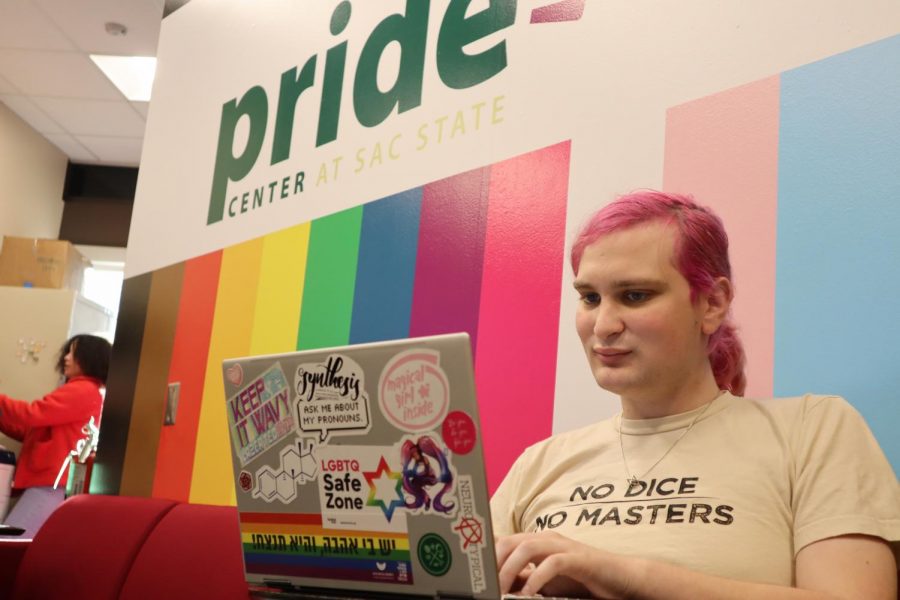
Biden signed another executive order on Jan. 20 to prevent and combat discrimination on the basis of gender identity or sexual orientation. The executive order will enforce laws such as Title VII that prohibit such discrimination.
“I do have a lot of faith in the really radical and progressive LGBTQ organizing that is happening on the grassroots level in the U.S. in the ways that folks are organizing and pushing on the federal government and on state governments to make these kinds of changes,” said Tristan Josephson, a Sac State women’s studies associate professor.
On Jan. 25, the White House released a statement saying that all transgender individuals who want to serve in the military and meet the specific standards to do so shall be allowed to without discrimination, reversing the ban enacted by the Trump administration.
“I think that having trans folks serve openly if they want is not gonna impact the performance of the military,” Josephson said. “I am more concerned with the fact I think that’s not addressing the ways the military itself is a violent institution, so we see a lot of gender violence happening in the military right now.”






















































































































